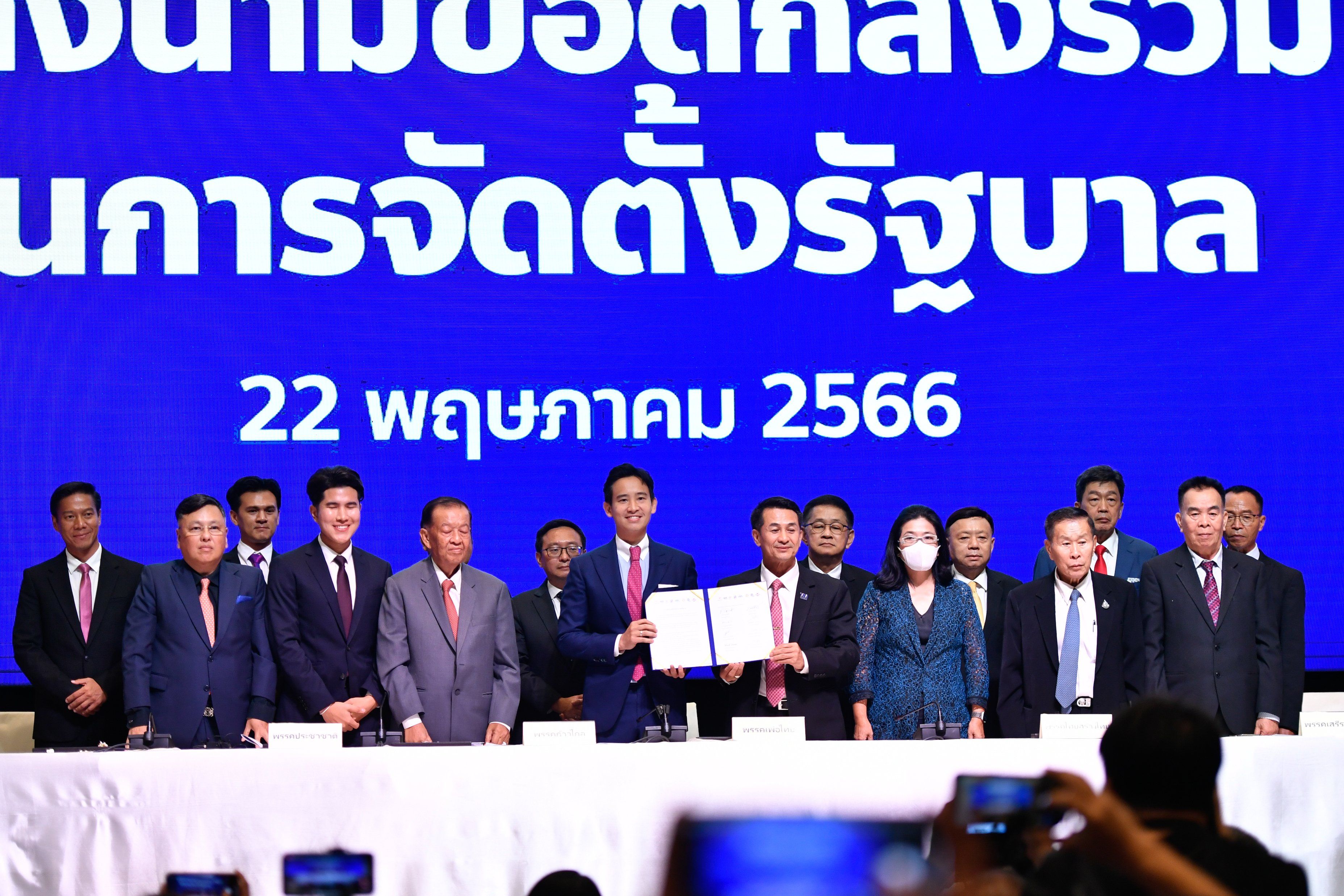On Monday, the Thai parliament will meet for the first time since the May 14 election to pick the next prime minister. Whoever gets the nod, some people won't be happy about it in a country with a checkered history of political turmoil: shaky governments, colorful protests, and military takeovers.
The candidate with the most support is Pita Limjaroenrat, the baby-faced leader of the progressive Move Forward Party, which won the most seats in the election. But a multi-party coalition headed by the MFP doesn't have enough votes to overcome a de facto army veto in the Senate. For more on this, read our primer.
If by some miracle Pita finds the votes to clinch the premiership, the ruling generals will look for ways to oust him, such as using the loyal courts to disqualify him on bogus charges. (The ultra-conservative, royalist elite views Pita as a spoiled brat who wants to kneecap the king's power.)
But the most likely outcome is either an army-backed minority government or the Pheu Thai (For Thais) party — supported by influential ex-PM Thaksin Shinawatra — cutting a deal with pro-establishment forces. That might include a pardon for Thaksin to return to Thailand after 15 years in exile.
Either scenario will surely trigger mass protests led by young people, who overwhelmingly voted for Pita and took to the streets in 2020-2021 to challenge the political elite. And if there’s violence, remember the Thai army is the world champion of coups.